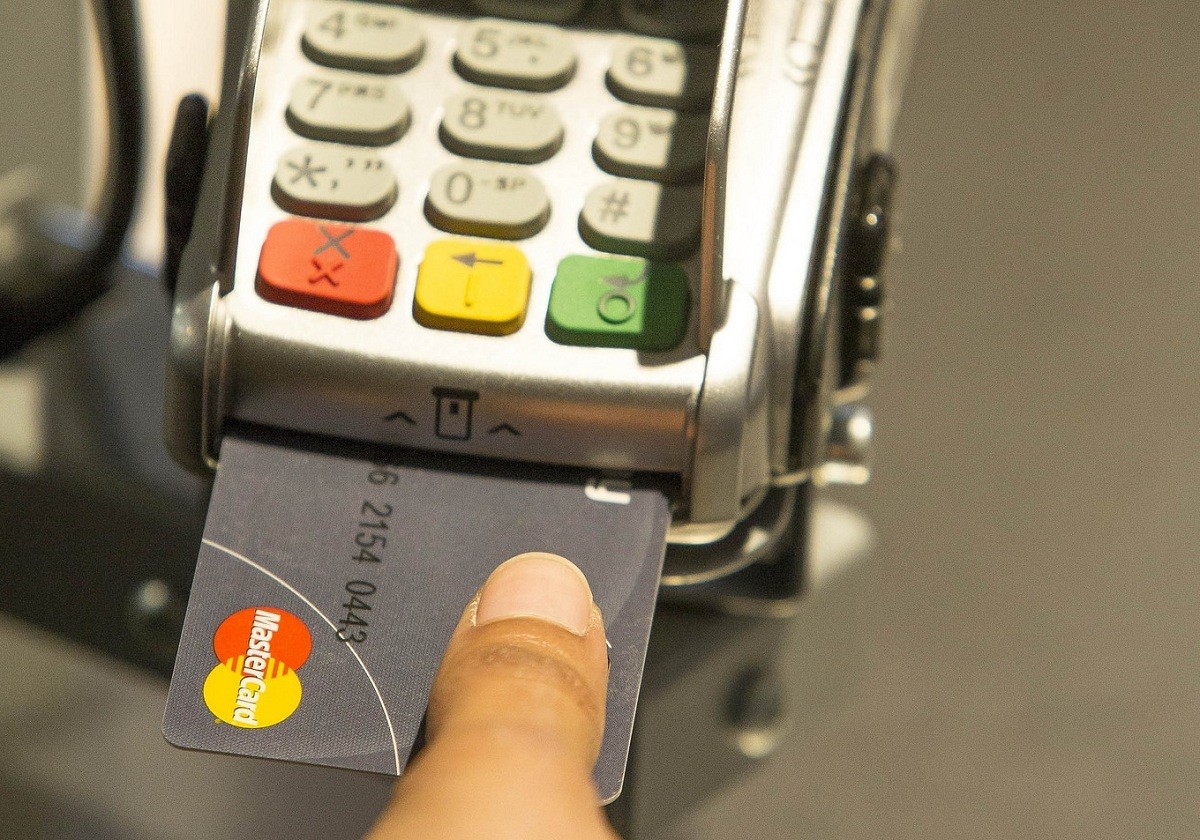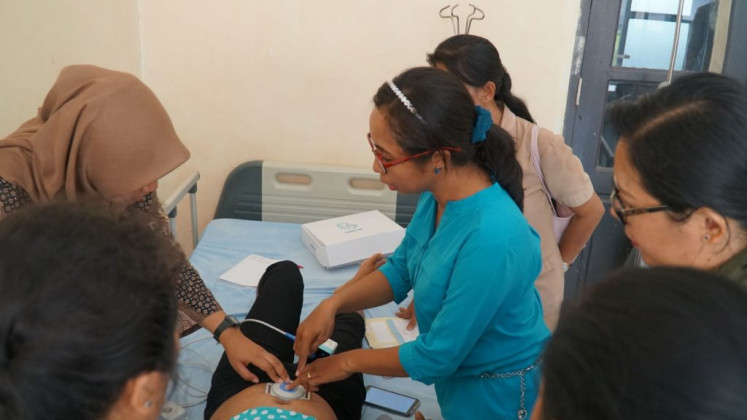Popular Reads
Top Results
Can't find what you're looking for?
View all search resultsPopular Reads
Top Results
Can't find what you're looking for?
View all search resultsNot about Visa, Mastercard
Seeing that international payments systems can be "weaponized" as part of economic warfare and observing the global divide in the US-China rivalry, Indonesia achieving financial independence through a domestic payments system would be wise.
Change text size
Gift Premium Articles
to Anyone
I
t took Bank Indonesia (BI) less than a week to follow up on the President’s warning about Indonesia’s dependence on foreign credit card networks.
The central bank said on March 18 that it had been discussing with local businesses on developing a domestic network, and that progress was at 90 percent.
Just two days later, BI spokesman Erwin Haryono told CNBC Indonesia that the new network would be launched in April, noting that Indonesia was following Japan and China in developing a domestic settlement network.
BI has been working for years on building domestic payment infrastructure in the hope of bringing down fees by settling transactions locally, rather than via foreign providers.
Recent global developments have obviously lent the issue a sense of urgency in exposing the risk of foreign-controlled systems being turned against users.
Indonesia has seen firsthand how this can play out. Last March, several Russian tourists were stranded in Bali with no way to pay for meals or accommodation, or even get a flight home, due to Western sanctions that locked out Russian banks from the SWIFT international payments system.
President Joko “Jokowi” Widodo has pointed to the United States’ economic sanctions against Russia as a case in point, noting that “Visa and Mastercard could be a problem”.
Hence, in addition to making the economic case for settling credit card transactions domestically, the President and BI are also keenly aware of the strategic case.
Given that sanctions are expressly deployed in economic warfare, it is clear that payment systems can be weaponized by the countries or companies that control them.
The President is right to stress the need for an independent credit card network, even though there is no specific threat against Indonesia on the horizon.
This is analogous to Indonesia having a standing army, even though there is no specific threat of an attack on the country. It is worth noting that Jokowi, in the very same speech, urged the police and military to procure goods and weapons from local rather than foreign manufacturers.
Still, there is the risk of so-called secondary sanctions imposed against third countries that engage in trade with a primary target of sanctions. Indonesia’s “free and active” foreign policy doctrine requires the government to eliminate the country’s vulnerability to such risk.
In a world increasingly divided between two economic blocs, one led by China and the other by the US, there are obvious risks to any country relying too heavily on either camp, as well as obvious benefits to countries that navigate cleverly between them.
In Indonesia’s case, for instance, it is prudent to keep its options open to buying oil from Russia and to be prepared for a scenario where, say, Washington demands Jakarta to stop supplying raw materials to certain Chinese firms or face sanctions.
“When a country has problems with other world powers, our dependence on [foreign] payment systems is terrible,” the BI spokesman was quoted as saying.
Whether a domestic credit card network will be effective in achieving this is another matter. And one may also ask: Who still uses credit cards anyway in the age of fintech?
It is just a small fraction of the population in Indonesia, where low credit card usage makes for appealing growth opportunities. But this also means that singling out credit cards alone does not do much in boosting national security.
Indeed, Jokowi urged general independence in payment systems, not just credit cards, and it is fair to assume that despite naming them, he was not taking particular aim at Visa and Mastercard.
Pushing the US-based networks out would be foolish, given their crucial role in tourism, but having alternatives up and running to eliminate any payment systems being vulnerable to abuse for political reasons would be wise.











